-
Fearless September 13-22 Milk Crate Theatre production Carriageworks, Sydney $35/$25 www.carriageworks.com.au Fearless is the first Milk Crate Theatre production to be presented at Sydney's Carriageworks. For the production, Milk Crate Theatre works with an ensemble of performers who have experienced homelessness or social marginalisation. The production exposes audiences to a vastly different point-of-view. Milk Crate Theatre productions allow Sydneysiders to see the world through different eyes.
-
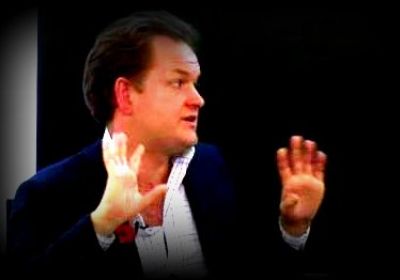
Ecuador's granting of asylum to WikiLeaks editor-in-chief Julian Assange has thrown a spotlight on the country's media policy. In 2008, Ecuadorians voted overwhelmingly for a new constitution.
-
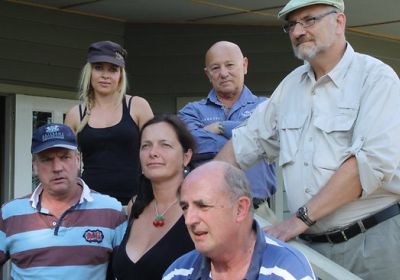 The compelling nature of the second series of SBS TV's Go Back Where You Came From highlights, by contrast, the atrocious nature of 99% of Australia's mainstream media. The myth-busting and heart-wrenching show, where six prominent Australians take a refugee's journey in reverse, reveals how media could challenge injustice — if it were not dedicated to a diet of celebrity, unreality TV, repeating falsehoods, and endless cooking shows. Go Back smashes anti-refugee lies that have been promoted by Liberal and Labor, and stoked by corporate media.
The compelling nature of the second series of SBS TV's Go Back Where You Came From highlights, by contrast, the atrocious nature of 99% of Australia's mainstream media. The myth-busting and heart-wrenching show, where six prominent Australians take a refugee's journey in reverse, reveals how media could challenge injustice — if it were not dedicated to a diet of celebrity, unreality TV, repeating falsehoods, and endless cooking shows. Go Back smashes anti-refugee lies that have been promoted by Liberal and Labor, and stoked by corporate media. -

"Misogyny is a huge problem in hip-hop," says radical rapper Marcel Cartier. "Even 'progressive' artists often fall victim to being perpetrators of sexist lyrics." The empathetic emcee hits chauvinists where it hurts on his new album, History Will Absolve Us.
-

Has the internet turned activists into "slacktivists"? It's just one of the questions posed on Smokey’s Haunt, the new album by the persistently provocative Urthboy.
-
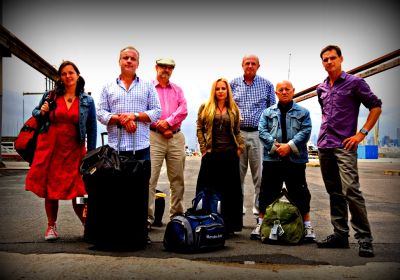
Catherine Deveny wasn’t quite sure what she would be in for when she agreed to appear in the second series of SBS’s hit refugee reality TV show, Go Back To Where You Came From.
-
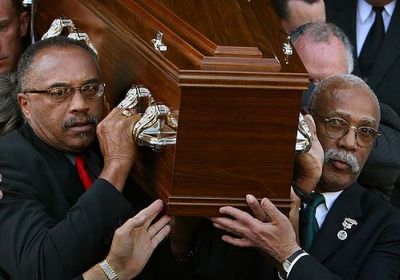 In an act as appropriate as it is overdue, the Australian parliament began debating issuing an official state apology on August 20 to the country's late, great sprinter Peter Norman. Norman won the 200-meter silver medal at the 1968 Olympics, but that is not why he is either remembered or owed apologies.
In an act as appropriate as it is overdue, the Australian parliament began debating issuing an official state apology on August 20 to the country's late, great sprinter Peter Norman. Norman won the 200-meter silver medal at the 1968 Olympics, but that is not why he is either remembered or owed apologies. -
Insidious war civil war worldwide to the accompaniment of patriotic grandiose really unrelenting drumming honourable members of society in paranoid march socialisation savagely civilising national hypnosis general narcosis lest we feel the mines secretly scattered around by wretched powerful creatures who with vacant gaze and tight jaws injure the truth in guileless eyes unsettled in broad limelight they carry around their deaf dead bodies smartly disguised with immaculate clothes flashing spouses palace-like houses their filthiest linen in grand pits they flush
-
 In Australia, Treasurer Wayne Swan made headlines by saying he was a huge fan of Bruce Springsteen ― despite implementing neoliberal economic policies of the sort Springsteen rails against. Mining billionaire and wannabe Liberal politician Clive Palmer jumped up to respond that his favourite band was Redgum ― despite the famously left-wing folk band, active in the 1970s and '80s, representing politics that are the exact opposite politics to Palmer's.
In Australia, Treasurer Wayne Swan made headlines by saying he was a huge fan of Bruce Springsteen ― despite implementing neoliberal economic policies of the sort Springsteen rails against. Mining billionaire and wannabe Liberal politician Clive Palmer jumped up to respond that his favourite band was Redgum ― despite the famously left-wing folk band, active in the 1970s and '80s, representing politics that are the exact opposite politics to Palmer's. -
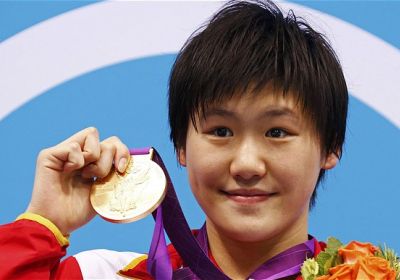 The spectacle of the 2012 London Olympics should be subtitled “The Bashing of the Chinese Athlete”. On August 8, Andrew Jacobs of the New York Times published a much-discussed piece called “Heavy burden on athletes takes joy away from China's Olympic success”. All kinds of “concerns” were raised about the toll “the nation's draconian sports system” is taking on the country's athletes.
The spectacle of the 2012 London Olympics should be subtitled “The Bashing of the Chinese Athlete”. On August 8, Andrew Jacobs of the New York Times published a much-discussed piece called “Heavy burden on athletes takes joy away from China's Olympic success”. All kinds of “concerns” were raised about the toll “the nation's draconian sports system” is taking on the country's athletes. -
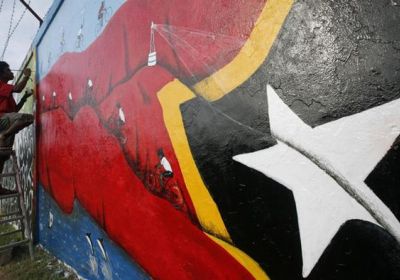 Secrecy: The Key to Independence Laura S. Abrantes & Beba Sequeira Asia Pacific Support Collective Timor-Leste, Dili 2012, 102 pp. This is a book you should turn to whenever you think activism is too hard. Twelve women from the remote areas of Timor-Leste (East Timor) tell how they fought for their nation's independence. In the 24-year war from 1975 to 1999, official estimates are that 18,600 people were killed by conflict and 84,200 died of hunger and disease.
Secrecy: The Key to Independence Laura S. Abrantes & Beba Sequeira Asia Pacific Support Collective Timor-Leste, Dili 2012, 102 pp. This is a book you should turn to whenever you think activism is too hard. Twelve women from the remote areas of Timor-Leste (East Timor) tell how they fought for their nation's independence. In the 24-year war from 1975 to 1999, official estimates are that 18,600 people were killed by conflict and 84,200 died of hunger and disease. -
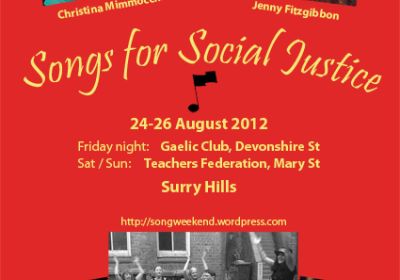 People are raising their voices in Sydney over August 24-26 to raise awareness among activists of songs, old and new, that further movements for social change. There was a time when protest songs attracted positive media attention; now the media tends to complain about the lack of contemporary “protest” songs while they simultaneously ignore or rubbish them.
People are raising their voices in Sydney over August 24-26 to raise awareness among activists of songs, old and new, that further movements for social change. There was a time when protest songs attracted positive media attention; now the media tends to complain about the lack of contemporary “protest” songs while they simultaneously ignore or rubbish them.
Culture
Culture